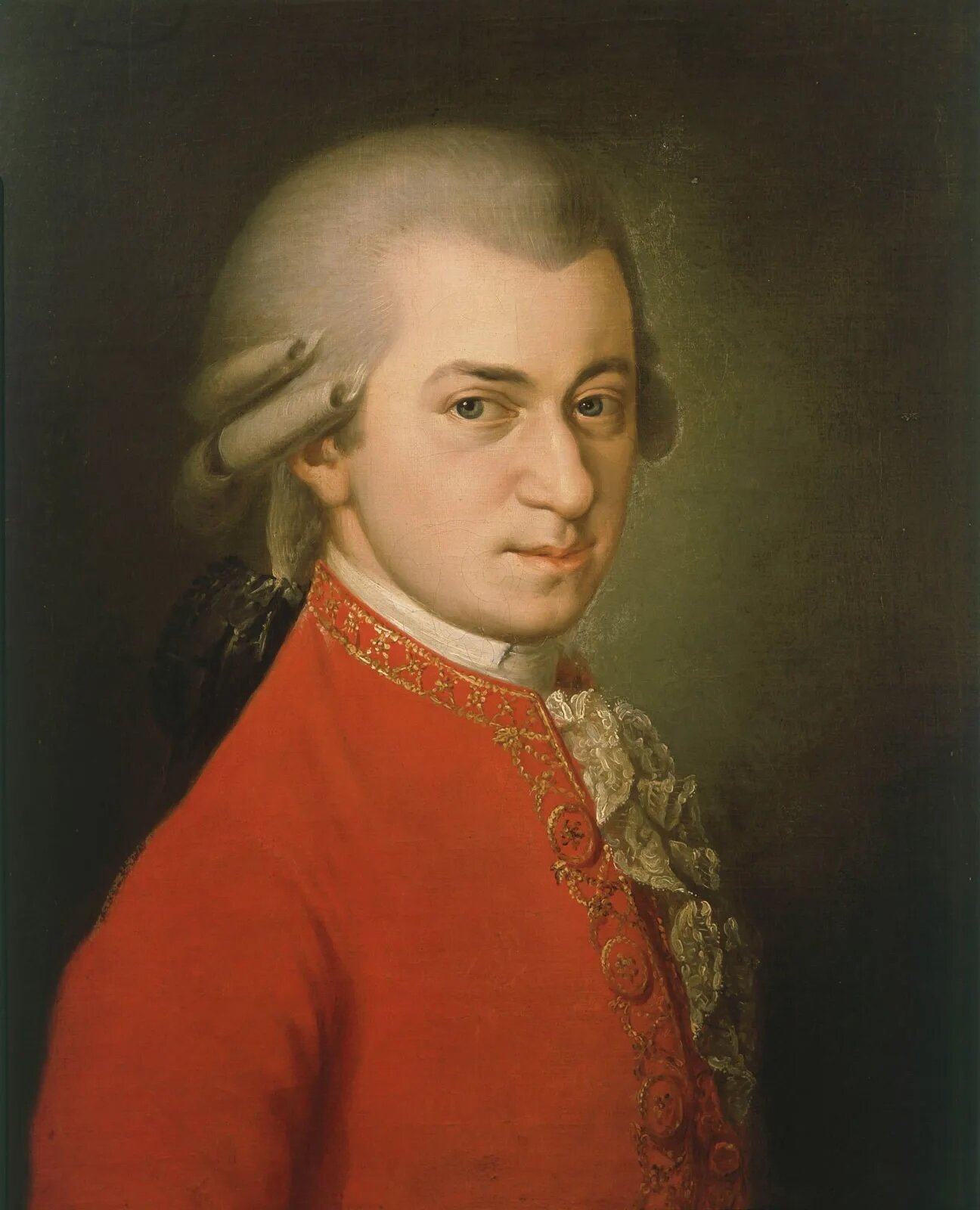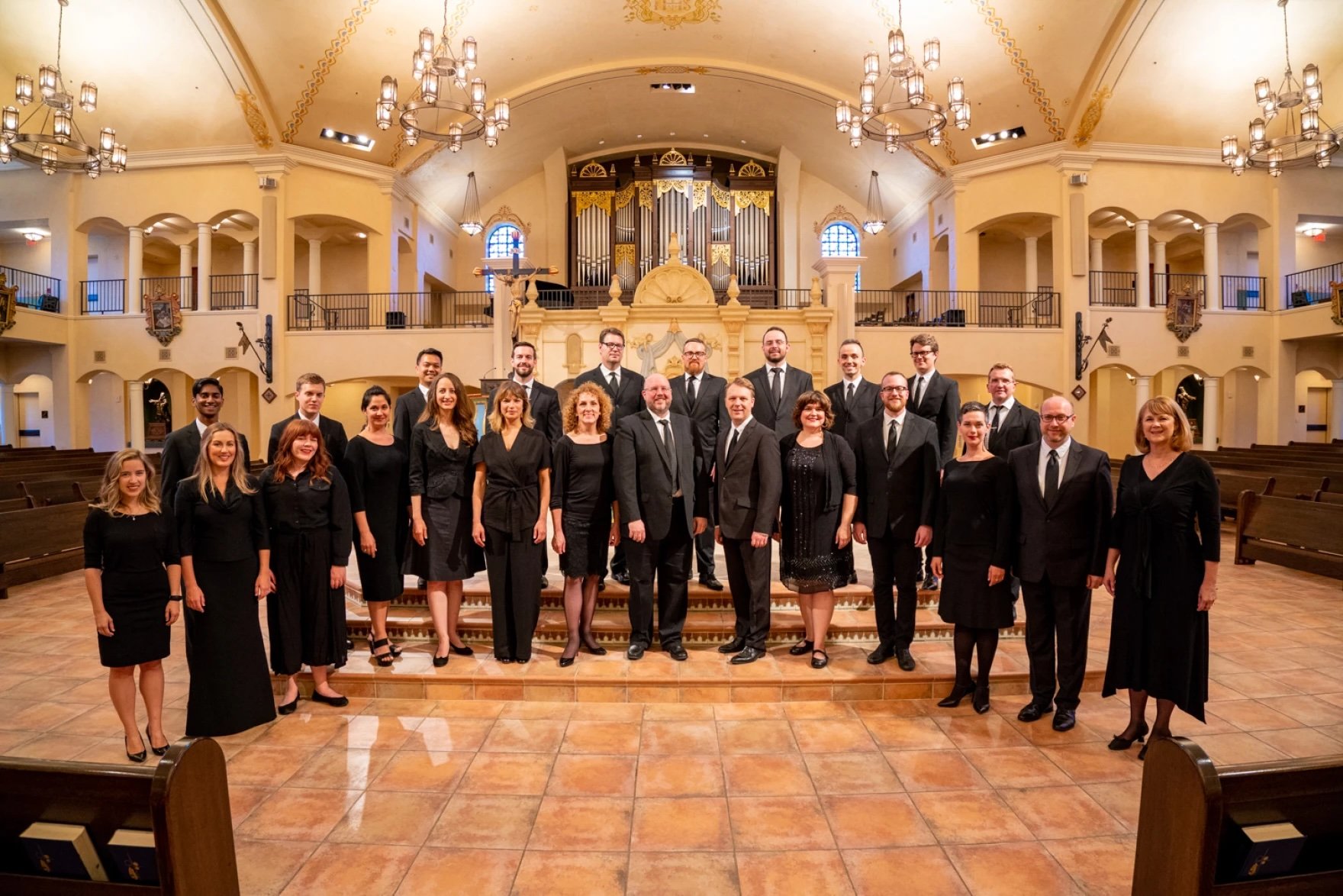MOZART AND MARTINES
Spire to Perform a Beloved Masterpiece and a Musical Discovery
By Patrick Neas, KC Arts Beat
The Spire Chamber Ensemble under its founder and music director Ben Spalding has always specialized in fresh and authentic performances of established masterpieces and mind-expanding musical discoveries. Such is the case with its upcoming concert of the Mozart’s Requiem and the Dixit Dominus by Marianna Martines April 5 at Country Club Christian Church and April 6 at Redemptorist Catholic Church.
To hear a major Baroque or Classical era work performed by an orchestra comprised entirely of period instruments, you usually has to travel to one of the world’s great music capitals, like New York or Berlin. But thanks to Spire, Kansas City is able to enjoy Mozart’s music as the composer himself would have heard it.
Spalding, born in Gardner, Kansas, did not set out to become an early music specialist, but that is where fate led him.
“I think I've always been a choir nerd,” Spalding said. “Singing in middle school was probably the first time I remember just falling in love with the sounds of the human voice and being able to work together to make something that we can't do on our own. But I did not set out to be an early music specialist, if you can call me that. It just kind of happened.
When Spalding founded Spire 15 years ago, the ensemble did not specialize in any certain period of music.
“We started doing more Bach and Handel, and that's when I really fell in love in a deeper way,” Spalding said. “And so I started reaching out to those heroes of the early music world. I owe a debt of gratitude to our very long-time concertmaster Elizabeth Blumenstock, who most people consider one of the finest Baroque violinists in all of North America.”
Blumenstock, who teaches historical performance at the Juilliard School, is also the concertmaster for San Francisco’s Philharmonia Baroque and American Bach Soloists. She’s also concertmaster of the International Handel Festival in Göttingen, Germany. Spalding has also studied with other renowned specialists in early and choral music, including Morten Lauridsen and the great Sir David Willcocks.
“I love that early music is as all about text,” Spalding said. “As somebody growing up in choirs, I love to dive into the the meanings of words and the meaning of text, what we would call rhetorical devices, or the art of rhetoric, the art of being able to persuade somebody to feel something.”
Spalding is bringing his insight and years of experience to his interpretation of Mozart’s Requiem, a work that achieved mainstream popularity through the film Amadeus. In the movie, Mozart’s putative rival, Antonio Salieri, anonymously commissions the Requiem for Mozart’s own funeral. While this is almost certainly not true, the work’s origins are still shrouded in mystery.
“It's a story where you get bits and pieces,” Spalding said. “We do know that it was a work that was commissioned by an unknown figure. We don't know who this person was. It was late in Mozart's life. He was in failing health. You know, he died at 35. He was way overworked. He had so many commissions at the time and was supporting a family. So we know that this commission came and he was frantically trying to get it done in failing health. But he did not finish it.”
The Requiem was completed after Mozart’s death by his student, Franz Xaver Süssmayr. That edition became the standard for many years, but will not be the one used by Spalding.
“We're doing one of the most famous modern versions by the Mozartian scholar Franz Beyer, who started it in the 70s and has done multiple versions. It's a lot of Süssmayr, but with some tweaks. Beyer just makes it a little easier, a little freer to sing. There are some orchestration issues, like when do the instruments play and when do they not play that he helped clean up and clarify and streamline. I think it's a fabulous edition. I am certainly going to put my own stamp on it, which I'm really looking forward to people hearing. It will not be your grandmother's Requiem.”
The first page of Mozart's autograph score
Most people have only heard Mozart’s Requiem performed on modern instruments. It will be a rare opportunity to hear this work performed on period instruments, which Spalding says show the work in a whole new light.
“You think of Mahler and what our wonderful Kansas City Symphony does,” Spalding said. “Long, luscious, beautiful, long bows, long phrases, deep colors. The Mozart Requiem is just a little different. It’s more about the character of the text. So you need really fascinating instruments like the basset horn, which eventually became part of the clarinet family. It doesn't look like a clarinet though, it has this weird bend in it, and then the bell looks like a trumpet bell. And so it creates this almost kind of a conjuring sound, which I think is really cool.”
Another curious instrument which Spire will use is the sackbut.
“The sackbut is the precursor to the trombone,” Spalding said. “What's fascinating is the sackbut was the instrument of the underworld, the instrument of Hades, the instrument of this realm of darkness. But Mozart uses it in a way to lift the text. There are very few people in all of North America that play these instruments at an extremely high level. And we have the best of the best.”
Basset horn by Jakob Friedrich Grundmann (1787)
Contrabass sackbut in B♭ by Georg Nikolaus Öller, 1639, Stockholm. The Swedish Museum of Performing Arts.
The other work on the program is the Dixit Dominus by Marianna Martines, an important female composer of the 18th century, who has been given short shrift in music history, if any shrift at all.
“This trailblazing figure lived during the time of Mozart and Haydn,” Spalding said. “She's from Vienna and lived most of her life in that region. She came from a wealthy family, so she was able to take lessons. But she was a brilliant improviser, a brilliant keyboardist, a brilliant singer. The beautiful soaring lines that she writes in this Dixit Dominus were probably written for herself.”
Franz Joseph Haydn taught Martines how to play harpsichord, and she was admitted to the Academia Filarmonica of Bologna in 1773. She was the first woman admitted to the academy in its 100-year history. Pope Clement XIV awarded her a special papal medal for her musical accomplishments. She was also highly regarded by Mozart, who made a special trip to offer condolences on the death of her brother, in spite of the fact Mozart himself was nearing death. This sort of recognition was unheard of for a woman composer at the time.
So why has she been forgotten to history?
“I think part of it is some systemic issues,” Spalding said. “Even though she was prominent during her time and she came from means and so was able to publish things, there was still this idea it was the the job of the men to publish and to conduct. It’s taken a long time for her to get the justice and the accolades that she deserves. We're so excited to be able to help her journey several hundred years later. It's really exciting music. I think people will love it.”
Performing music by worthy but marginalized and overlooked composers is as much a part of Spire’s mission as its commitment to authentic, period performances.
“It's important to us that we're not we're not only honoring the greats, but expanding our horizons,” Spalding said. “It makes us more curious as human beings just exploring this music. Hopefully people will think, boy, I want to know more. And over time, we start to learn that we are more alike as a global family. And I think that's what music does. It helps open our ears and our hearts and our voices to be more empathetic.”
7:30 p.m. April 5. Country Club Christian Church, 6101 Ward Parkway, Kansas City, MO 64113
2 p.m. April 6. Redemptorist Catholic Church, 3333 Broadway Blvd. Kansas City, MO 64111
For more information, spirechamberensemble.org.






